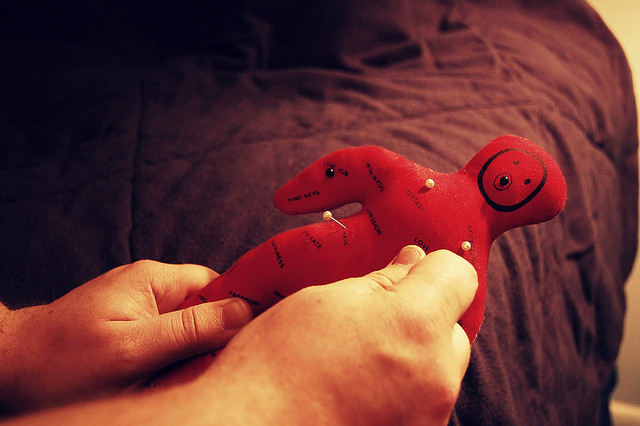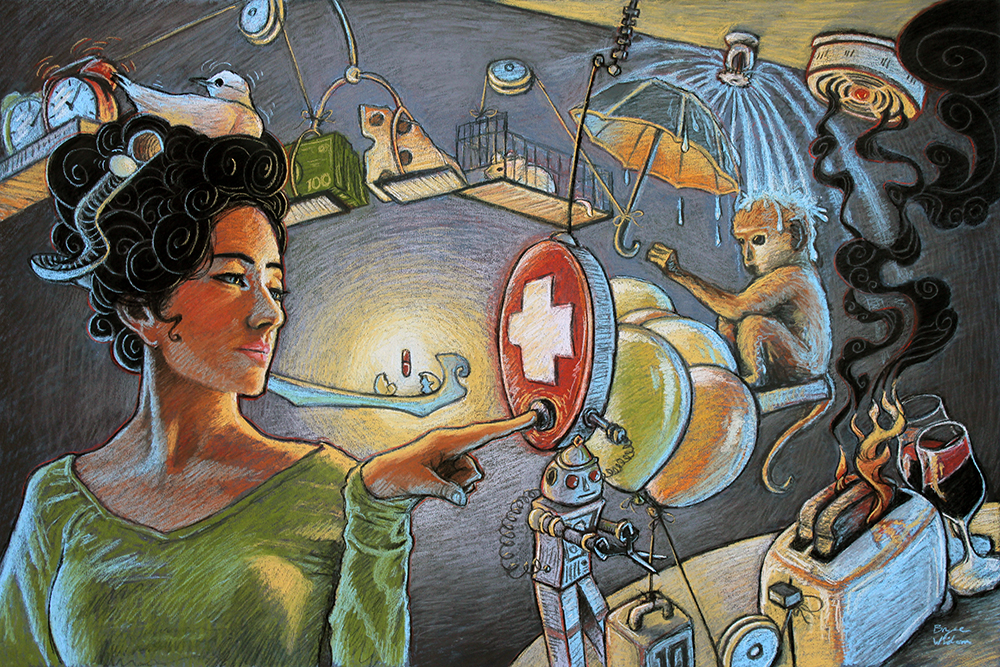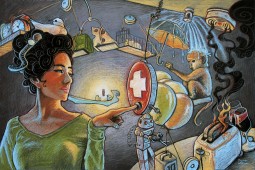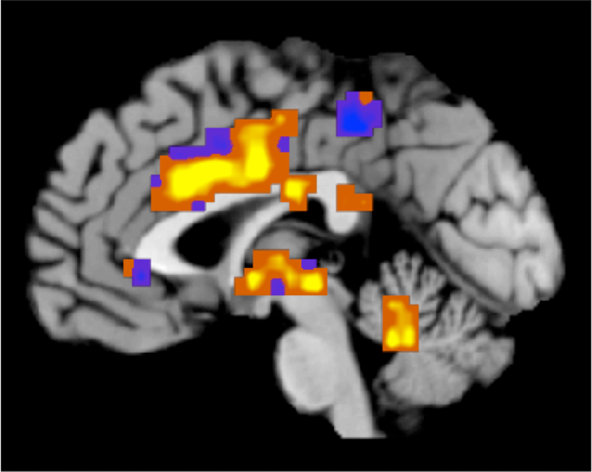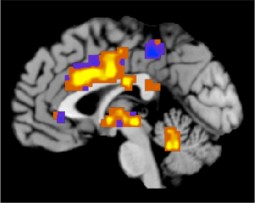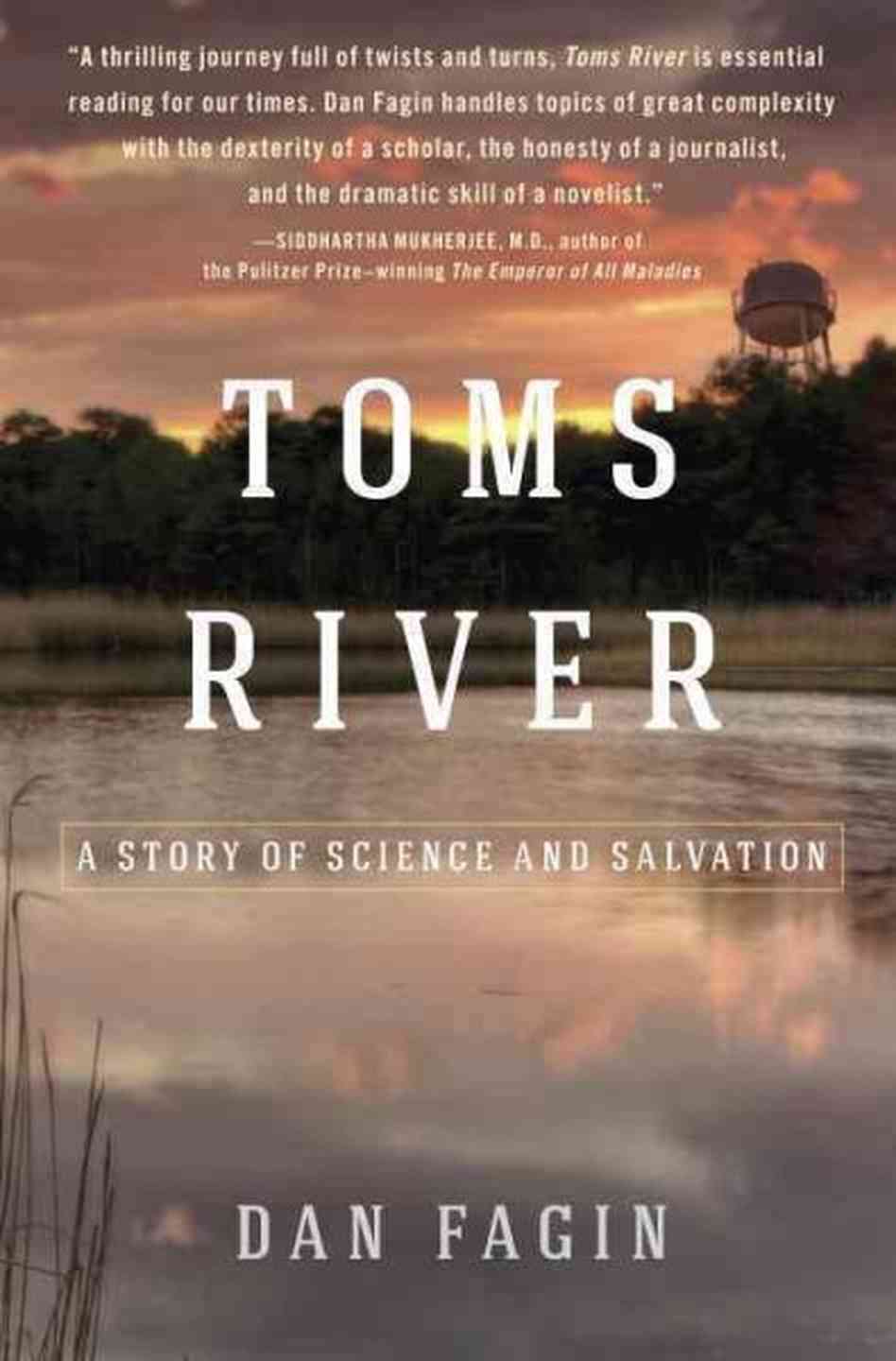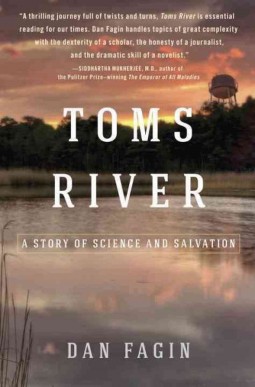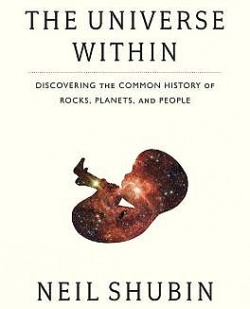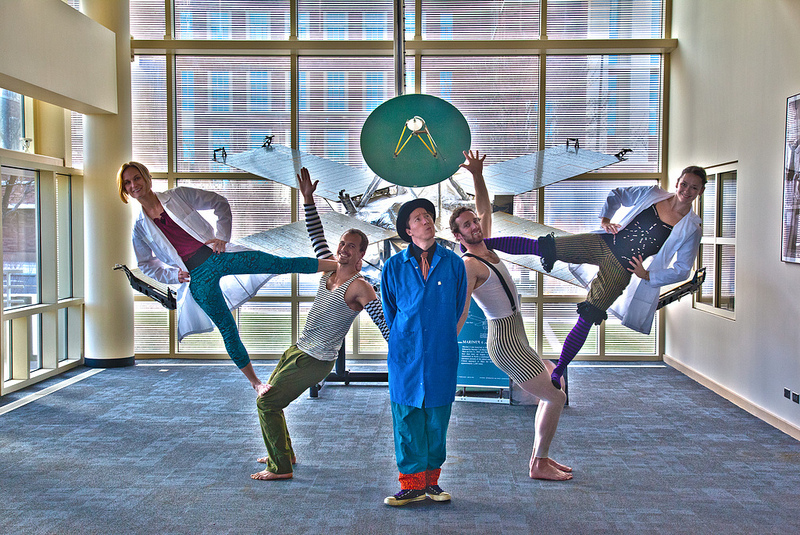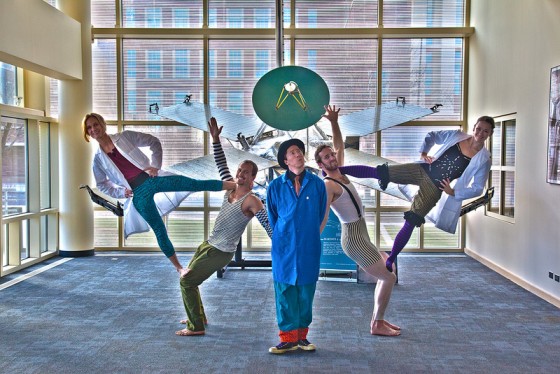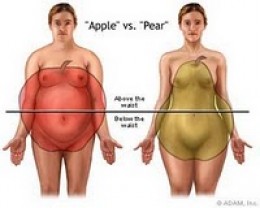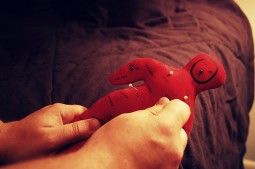
The Voodoo Doll Task – (begins 5:30) Scientists have few ways to accurately measure agression. How on Earth’s Garth Sundem talks with University of Kentucky psychology professor, Nathan DeWall, about a new fix. It’s called the Voodoo Doll Task. DeWall’s recent studies include over thirteen hundred subjects, and an upcoming research paper shows his voodoo doll task works darn well. What does an angry person do when holding a voodoo doll and a handful of pins, or when presented with a computerized version of the doll? The answer could indicate that person’s desire to carry out the aggressive action in real life.

Drones for Climate Science – (begins 15:00) These days they get a bad rap because of their use by the government to snoop on people, and even to kill terrorists. But unmanned aerial vehicles – often called “drones” – are increasingly being used to save the planet, or at least to measure and understand a slice of it. For more, How on Earth’s Susan Moran talks with Doug Weibel who is part of a CU-Boulder science and engineering team that designed an unmanned aerial vehicle , or UAV, that they’re about to take to Alaska’s Arctic Circle. The aircraft –called DataHawk — is meant to help them better grasp how Arctic sea ice is melting, especially in the summer in areas where it used to persist for many years.
Hosts: Susan Moran, Shelley Schlender
Producer: Shelley Schlender
Engineer: Shelley Schlender
Executive Producer: Joel Parker
Listen to the show:
Podcast: Play in new window | Download (Duration: 23:22 — 21.4MB)
Subscribe: RSS

